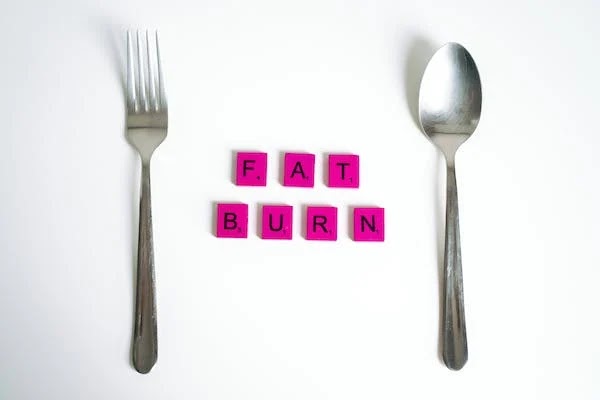What are the side effects of Probiotic ? How to mitigate the side effects ? | Health Tips
Probiotics are living bacteria and yeasts that, when ingested in big quantities, have positive effects on one's health.
They can be absorbed naturally through fermented foods such yogurt, kefir, sauerkraut, kimchi, and kombucha or taken as supplements.
Probiotic foods and supplements provide several recognized health advantages, such as a decreased risk of infections, improved digestion, and even a decreased risk for some chronic diseases.
Probiotics have a variety of advantages for your health, but they can also harm you. The majority of these are minor and barely noticeable in terms of their effects on the populace.
However, certain people with severe illnesses or compromised immune systems may experience more serious problems.
How to mitigate the side effects ?
The most prevalent probiotic adverse effects and suggests ways to mitigate them.
They might result in uncomfortable digestive symptoms.
The most frequently reported reaction to probiotic supplements based on bacteria is a temporary increase in gas and bloating, even though the majority of people do not experience negative side effects.
Probiotics made of yeast may cause constipation and increased thirst in users .
Although the actual cause of these adverse effects in some users is unknown, they usually go away after a few weeks of regular use.
To reduce the chance of side effects, start with a modest dose of probiotics and increase it gradually to the maximum dosage over a few weeks. Because of this, your body will be able to adapt.
Stop taking the probiotic and seek medical advice if the gas, bloating, or any other adverse effects last for more than a few weeks.
Summary
When taking probiotics, some people notice an increase in gas, bloating, constipation, or thirst. Within a few of weeks, these adverse effects ought to disappear.
Amines in Foods Contains Probiotics May Cause Headaches
Biogenic amines are present in some probiotic-rich foods, including yogurt, sauerkraut, and kimchi.
Biogenic amines are chemicals that develop over time or as a result of bacterial fermentation of foods that contain protein.
Histamine, tyramine, tryptamine, and phenylethylamine are the most frequent amines detected in diets high in probiotics.
Amines have the ability to stimulate the central nervous system, increase or decrease blood flow, and, in those who are sensitive to the chemical, to cause headaches.
In one study, 75% of participants reported less headaches after adopting a low-histamine diet. However, a review of 10 carefully conducted research indicated that dietary amines had no appreciable impact on headaches.
If amines can directly cause headaches or migraines in some persons, more investigation is required.
If you have headache symptoms, recording them in your food journal can help you determine whether fermented foods are harmful for you.
A probiotic supplement can be a better option if probiotic-rich meals make your symptoms worse.
Summary
Fermented foods rich in probiotics naturally contain amines. After consuming these foods, some people may have headaches; in this case, they should choose probiotic pills.
Certain Strains May Boost Histamine Levels
Some bacterial strains included in probiotic supplements have the ability to cause histamine production in human digestive systems.
Your immune system often releases the chemical histamine when it recognizes a threat.
Blood arteries expand when histamine levels rise, supplying more blood to the affected area. Additionally, the veins become more permeable, allowing immune cells to more quickly enter the appropriate region and fight off any invaders.
The affected area becomes red and swollen as a result of this process, which can also cause allergy symptoms including itching, watery eyes, a runny nose, or difficulty breathing.
Histamine is generally broken down in the digestive tract by an enzyme called diamine oxidase (DAO). High histamine levels are prevented by this enzyme from causing symptoms.
However, due to insufficient DAO production, some individuals with histamine sensitivity struggle to effectively break down the histamine in their bodies.
The symptoms of an allergic reaction are then brought on by the excess histamine being absorbed through the gut lining and into the bloodstream.
Foods that contain too much histamine should be avoided by those who are histamine intolerant.
Theoretically, people might choose probiotic pills devoid of histamine-producing bacteria, but there hasn't been any research on this particular topic to yet.
Lactobacillus buchneri, Lactobacillus helveticus, Lactobacillus hilgardii, and Streptococcus thermophilus are a few probiotic strains that produce histamine.
Summary
The digestive tract may emit histamine as a result of some probiotics. Those who are sensitive to histamine may need to avoid certain bacterial strains.
Some Ingredients May Trigger Adverse Reactions
Those with allergies or intolerances should carefully inspect probiotic supplements since they may contain ingredients to which they may be sensitive or allergic.
Some vitamins, for instance, contain allergens like dairy, egg, or soy.
These ingredients should not be consumed by allergy sufferers since they may result in an allergic reaction. If required, thoroughly examine labels to determine which ingredients to avoid.
Similar to this, probiotics containing yeast shouldn't be taken by persons who have allergies to it. Instead, one should take a probiotic made from bacteria.
Many probiotic supplements also contain milk sugar, sometimes known as lactose.
There have been case reports of negative effects from probiotics, despite studies suggesting that most persons with lactose intolerance can take up to 400 mg of lactose in drugs or supplements.
A small number of people with lactose sensitivity may experience painful gas and bloating after eating probiotics that include lactose; as a result, they might choose lactose-free products.
Prebiotics and powerful probiotics are both present in certain tablets. These are plant fibers that can be consumed by bacteria but are indigestible to humans. The most common kinds include lactulose, inulin, and various oligosaccharides.
A supplement is referred to be synbiotic when it includes both probiotic bacteria and prebiotic fibers.
Some people may experience bloating and gas after consuming synbiotics. If you have these side effects, pick a supplement without prebiotics.
Summary
Prebiotic fibers, lactose, or allergens present in probiotic supplements may cause adverse reactions in certain people. These ingredients can be avoided by reading the labels.
They might make some people more susceptible to illness.
Although probiotics are typically seen to be safe, they might not be the best option for everyone.
Rarely, the bacteria or yeasts in probiotics can enter the bloodstream and infect those who are vulnerable.
People with weakened immune systems, extensive hospital stays, venous catheters, or those who have recently had surgery are at the greatest risk of infection from probiotics.
However, the likelihood of getting an infection is incredibly slim, and population-based clinical research have not found any significant infections that might be to blame.
It is expected that just one in a million people who take probiotics containing Lactobacilli bacteria will acquire an infection. The risk is far reduced for probiotics made of yeast because only one in every 5.6 million users gets an infection.
Rarely do infections occur, and when they do, they frequently respond favorably to traditional antibiotics or antifungals. Nevertheless, fatalities have sometimes occurred.
Probiotics should not be taken because evidence indicates that they may increase the risk of death in those with severe acute pancreatitis.
Summary
Anyone with a compromised immune system, venous catheters, recent surgery, severe pancreatitis, or prolonged hospital stays shouldn't take probiotics.
The conclusion
Probiotics are living microorganisms that have beneficial effects on health when eaten in big numbers. They can be found in foods that have been fermented naturally as well as in supplements.
Probiotics are generally considered to be safe, yet side effects are still possible. The most common side effects include temporary increases in gas, bloating, constipation, and thirst.
Additionally, some people may experience negative effects from the compounds in probiotic supplements and the naturally occurring amines in probiotic meals. Immediately stop using probiotics if this occurs.
Rarely, infections with probiotic bacteria can develop in people who have recently had surgery, protracted hospital stays, or weakened immune systems. People with certain conditions should weigh the risks and advantages before using probiotics.
Most people find that adding probiotics to their diet or supplement regimen is beneficial, with few and unlikely side effects.
More Read : What is the silent killer of female body ? What is PCOS ? How to fix it ? | Women's Health Tips

.jpg)
.jpg)



.webp)
